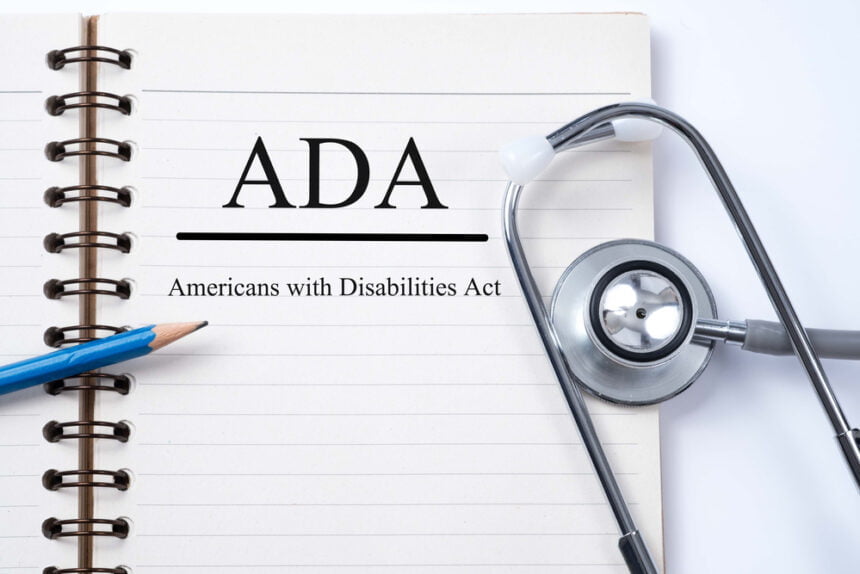The Americans with Disabilities act was signed on July 26, 1990. The law was the product of years of debates about the struggles that disabled people faced. Activists argued that disabilities precluded many people from finding employment. Many parents expressed displeasure that their children were segregated from typical public schools.
The scope of the Americans With Disabilities Act has evolved over the past 30 years. When it was first passed, the stereotypical image of a protected worker or student was somebody in a wheelchair. Today, it protects the mentally ill just as much as the physically disabled.
What are the legal protections of the ADA for people with mental illnesses? Here are some of the key provisions outlined under the law.
Employers are prohibited from asking questions about your mental health during interview
You have a right to seek accommodations for your mental illness under the ADA. However, the protections are mostly one-sided under the law. A potential employer is not allowed to ask questions about your mental health history during an interview. You are free to bring some of them up on your own, but there are some risks, as shown below.
You have a right to decent mental health services
Mental health services are much more supportive than they used to be. However, they can be costly, particularly for certain illnesses. The good news is that there are a number of services that are covered under most healthcare policies. The Affordable Care Act requires health insurance companies to offer mental health coverage. According to the experts at the Teen Depression Treatment Center, these protections are very beneficial for young adults and teenagers.
You cannot be denied a job for a mental illness, unless it creates an unreasonable burden for your employer
Keep in mind that the ADA does not protect you from any and all forms of discrimination. It offers reasonable protections if your disability does not create significant risk or inconvenience to a potential employer.
With most mental illnesses, this shouldn’t be a major concern, as long asyour condition is in remission or properly managed. If you have a history of depression, for example, the majority of employers will+ not be allowed to hold it against you. However, there may be exceptions for positions that require a tremendous amount of stress and where you are depended on to make immediate, life-and-death decisions. People with major depressive disorders may be prohibited from working in the military or law enforcement. However, they generally will be protected from discrimination in most other fields, such as IT, finance, engineering and most healthcare occupations.
A person suffering from Asperger’s syndrome could be prohibited from working in fields where there is a strong need to interpret social cues and articulate feedback in a certain way. They might not be allowed to work in many counseling jobs, but the hiring manager will need to assess them as an individual. If they are on the high functioning end of the spectrum, they may not have any issues. In general, the employer must assess your ability to do your job, rather than using your disability as an automatic disqualifier. This is an important protection for people on the Asperger’s spectrum, since their unemployment rate is over 75%.
You must make your employer aware of your condition before they can be required to provide accommodations
Mental illness is different from physical disabilities in a number of ways. One of the biggest differences is that the condition is not usually immediately noticeable. Some people are able to successfully hide their mental illnesses from their employer, friends and even their own spouse for years until a problem arises.
Since your employer may not be aware of your condition, it is your responsibility to bring it to their attention. You must let them know if there are any accommodations that you need. If you have trouble with your job, they may be allowed to ask what accommodations they can provide. However, they still are not allowed to ask specific questions about your mental health history.






